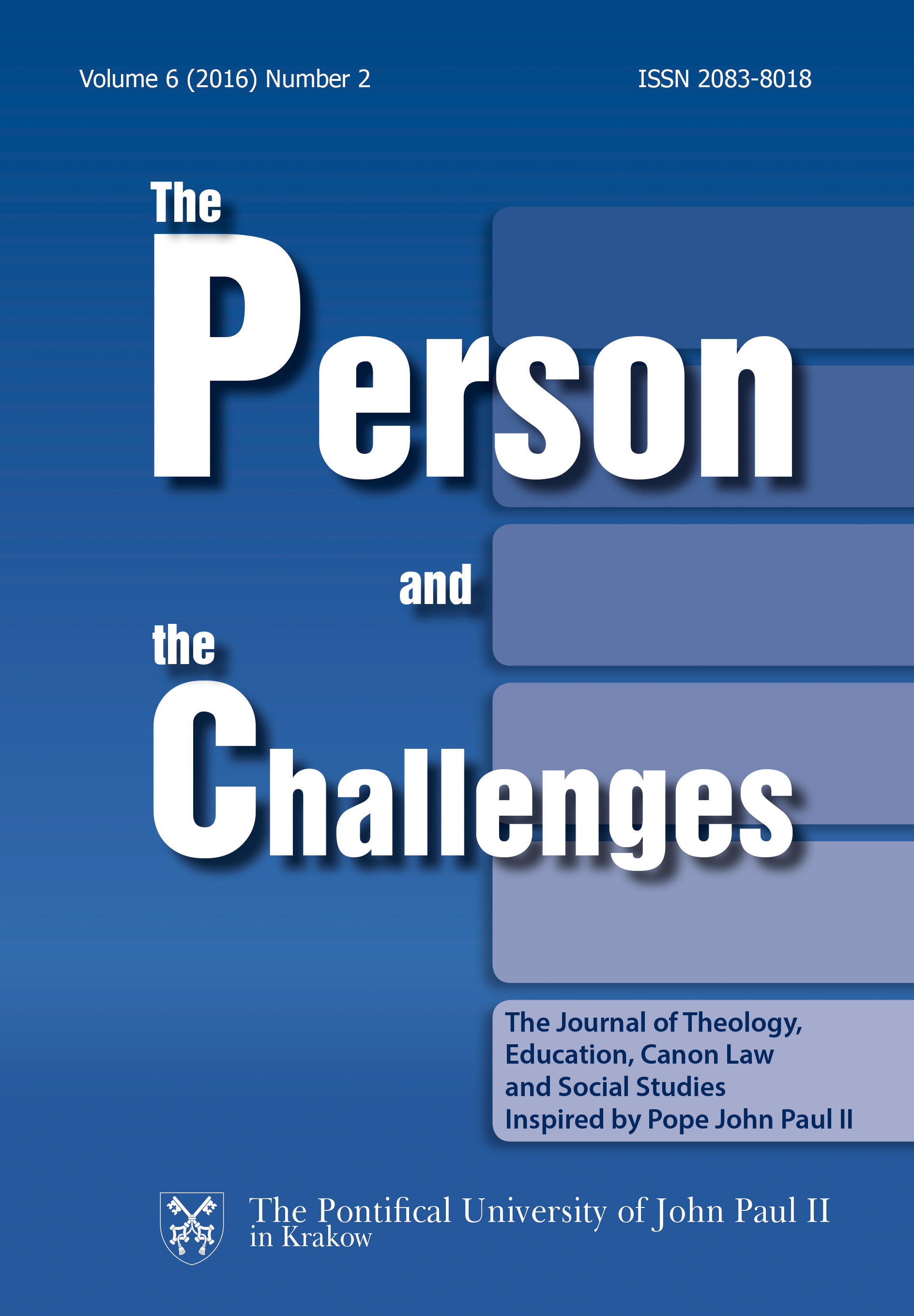Migration: Dangers and Opportunities for the Family in the Light of John Paul II’s Messages for World Migrant Day
DOI:
https://doi.org/10.15633/pch.1891Słowa kluczowe:
migration, family, state and migrants, Church and migrants, ethical and moral rulesAbstrakt
The phenomenon of migration has become a subject of numerous sociological, economic and political analyses. It has also become an issue of interest for Catholic Social Teaching. The complexity of this subject, its topicality and a need for a diagnosis in the light of ethical and social rules are contained within the consecutive messages for the World Migrant Day by the Holy Father John Paul II. A particularly interesting dimension of the discussion of the phenomenon of migration is the analysis of this problem in terms of its influence on the modern family. John Paul II notices that owing to the dignity of the family and its significant role in the process of upbringing of the young generation, the decision to migrate by members of a family or entire families must be well thought‑out and carefully considered in the context of a necessity to undertake such steps. The necessity condition is related to a wide array of threats, which a family would have to face if they chose to take the migration path. The Pope also points out that migration is, at the same time, a justifiable opportunity for the development of a family, which should be provided ample assistance by the Church and state in a new environment.Bibliografia
Andrees B., Praca przymusowa jako forma handlu, in: Handel ludźmi – zapobieganie i ściganie, ed. Z. Lasocik, Warszawa 2006, pp. 185–205.
Bos‑Karczewska M., Migracja czy zagrożenie, Gdańsk 2005.
Dzwonkowski R., Jan Paweł a emigracja i Polonia, Lublin 1991.
John Paul II, Catholic laity and emigration. Pope’s Message for World Emigration Day, “L’Osservatore Romano” 9–10 (1987), pp. 3–4.
John Paul II, Marriage and family. Pope’s Message for World Emigration Day, “L’Osservatore Romano” 9 (1986), pp. 21–22.
John Paul II, The migrant’s laws should be neither violated nor ignored. Message of the Holy Father for World Migrant Day 1996, “L’Osservatore Romano” 6 (1996), pp. 8–9.
John Paul II, The danger of proselytism of religious sects. Pope’s Message for World Migration Day 1990, “L’Osservatore Romano” 7–8 (1990), pp. 8–9.
John Paul II, Message of the Holy Father for World Migrant Day 1992, “L’Osservatore Romano” 10 (1992), pp. 5–6.
John Paul II, Message of the Holy Father for World Migrant Day 1991, “L’Osservatore Romano” 9–10 (1991), pp. 37–38.
John Paul II, Message of the Holy Father for World Migrant Day 1993, “L’Osservatore Romano” 11 (1993), pp. 4–5.
John Paul II, Pope’s Message for World Migrant Day 1989, “L’Osservatore Romano” 9 (1989), pp. 4–5.
John Paul II, Pope’s Message for World Emigrant Day, “L’Osservatore Romano” 10–11 (1988), pp. 31–32.
John Paul II, The problem of refugees. Message for World Emigrant Day, “L’Osservatore Romano” 8 (1984), pp. 27–28.
John Paul II, Sollicitudo rei socialis, 38.
Kaczmarczyk P., Migracje zarobkowe Polaków w dobie przemian, Warszawa 2005.
Skorowski H., Imigracja a prawa człowieka, in: Migracja jako nowa kwestia społeczna, ed. J. Balicki, Katowice 2003, pp. 18–31.
Zając M., Emigracja wyzwaniem duszpasterskim dla Kościoła, Lublin 2009.
Pobrania
Opublikowane
Numer
Dział
Licencja
Prawa autorskie (c) 2016 Ireneusz Stolarczyk

Utwór dostępny jest na licencji Creative Commons Uznanie autorstwa 4.0 Międzynarodowe.
Autorzy publikujący w czasopiśmie udzielają jego wydawcy zgody o następującej treści:
- Autor zachowuje autorskie prawa majątkowe do utworu, a jednocześnie udziela wydawcy czasopisma zgody na jego pierwszą publikację w wersji drukowanej i wersji online na licencji Creative Commons Uznanie autorstwa 4.0 Międzynarodowe oraz zgody na wykonywanie opracowań, w tym przekładów.
- Autor ma możliwość udzielania zgody niewyłącznej na opublikowanie utworu w wersji, która ukazała się w czasopiśmie (np. zamieszczenia go w repozytorium instytucjonalnym lub opublikowania w książce), wraz z informacją o jego pierwszej publikacji w czasopiśmie.
- Autor może umieścić swój utwór online (np. w repozytorium instytucjonalnym lub na swojej stronie internetowej) jeszcze przed zgłoszeniem utworu do czasopisma.

